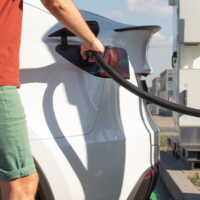In his first Senate confirmation hearing to be secretary of the Department of Health and Human Services, Robert F. Kennedy Jr. repeated claims we have written about before on vaccines and chronic disease.
Stories by Catalina Jaramillo
FactChecking Trump’s Inaugural Address
What We Know About What Led to the L.A. Wildfires
Trump’s Blame Claims About Wildfire Response
Where Trump’s Picks for EPA, Interior and Energy Stand on Climate Change
Harris vs. Trump on Climate Change
Walz’s False Project 2025 Pregnancy Monitoring Claims
Democratic vice presidential nominee Tim Walz falsely claimed that Project 2025 calls for the tracking of “all pregnancies” and would require people “to register with a new federal agency” upon getting pregnant. The conservative playbook advocates the reporting of all miscarriages and abortions but does not stipulate the monitoring of all pregnancies.









